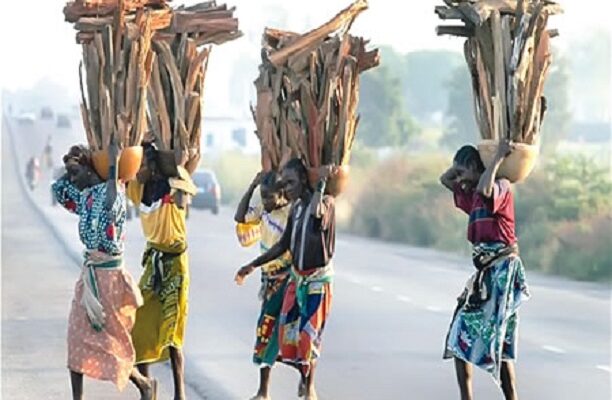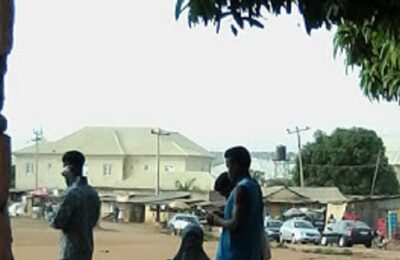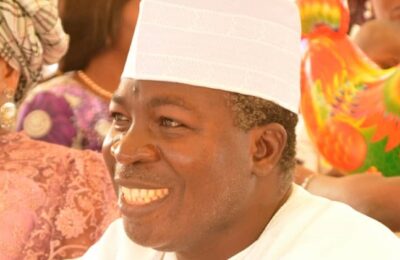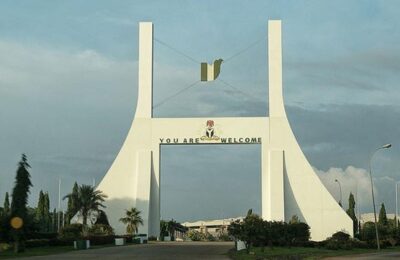When Abuja was selected out of a long list of other local cities to be Nigeria’s new capital territory, it was a selection based on numerous merits such as its prime and central location, extensive land mass, favourable climate and the fact that a good portion of it was uninhabited and unspoken for.
The Murtala Mohammed led military government which did this selection, and subsequent governments after his, took upon them the task of ensuring that the new capital city which critics called a utopian dream, became tangible, so that the relocation of the country’s government seat from a congested Lagos State could be possible.
The first point of action was creating the city’s Master Plan.
Now, having learnt a few salient lessons from the shortcomings of Lagos as the capital city, the government didn’t want a repeat of these failures, so they made a grand Master Plan which covered every inch and breadth of the city, leaving nothing to chance, then split development of the city into phases and began implementation.
So thoroughly planned was the city of Abuja that government thought to introduce the city’s population in incremental ‘doses’ so as to prevent overcrowding which would have the negative effect of straining the city’s infrastructure and the social amenities available per time.
Gratefully, and much to the dismay of critics, sixteen years after Abuja was first announced as the new capital territory, the seat of power, government ministries and parastatals were moved into the burgeoning city.

Today, more than thirty years after that great exodus, the city has seen exponential growth, to the extent that it is considered one of the fastest growing cities in the world.
Whoop! Dream come true, right? Certainly. But, while most Nigerians are proud of and happy about the rapid development and popularity garnered by their capital city, there remain a few who it would appear are the sacrificial lambs in this scenario.
So, while others enjoy the glitz of the city, revelling in its economic growth and taking pride in the sense of belonging that the personality and brand connotation of Abuja as a ‘city for all’ evokes, they themselves are caught in a limbo.
For even though their ancestors were born and buried in the land, today they can neither lay claim to it as theirs as that would be violating one of the core values of the new capital territory as delineated by its founders; nor can they lay claim to another land without inciting a fight with its current dwellers.
The original inhabitants of Abuja whose land is currently used as the ‘Centre of Unity’ for Nigerians from the 36 states of the country cannot fully appreciate the sentiment as they themselves have no state from which to come and unite with others at this centre.
Now, you may ask, what was the plan for this indigenous peoples in the very lustrous Abuja Master Plan, surely government must have factored them in in some way?
Well, according to authorities, as at the time when Abuja was chosen to be the capital territory, most of the land was uninhabited and along the line, the few inhabitants were asked to choose between moving to neighbouring states or being relocated to government earmarked areas of the territory so as to free up their land for the large-scale development planned.
The result of this relocation is what we see today: the original inhabitants of Abuja and their chiefdoms now mostly occupy the outskirts of Abuja where sadly, the fast-paced developmental drive experienced in the city’s center is not being replicated, or at least, not with the same momentum.
So maybe, they would have said “well, at least we’re living well in this all-man’s city which was once ours but isn’t anymore, so let’s be grateful for that and carry on with our lives…” but they cannot say so as most of the areas they occupy, including those allocated to them by government are in deplorable conditions and still being contested to be taken away by those who have connections within the corridors of power.
From bad access roads, to poor electricity supply, unavailability of potable water, sub-standard health facilities, the list goes on and on. In short, there is a contradiction between what is obtained in the business districts and upscale residential parts of Abuja with what one would see in these chiefdoms.
In fact, so stark and glaring is this contradiction that many a person visiting Abuja for the first time have thought that Abuja began from Airport Road.
It should therefore come as no surprise that the original inhabitants of Abuja are dissatisfied and asking to be granted a state of their own.
This request in this writer’s opinion, only seems fair because if you’re going to take something from one person and say it belongs to everyone, especially if others are still keeping theirs, then the original owner should be adequately compensated, rather than relegated.
Now more than ever, the original inhabitants of Abuja deserve to be heard and considered as day by day, we see the city of Abuja becoming more and more classist and elitist. It is gradually becoming a city where the poor are seen as a taint to its flamboyance and glitz. A place where to get any respect or even access to good service delivery, one has to be able to afford to live and actually live in one upscale part of the city or the other.
What future then have these poor and marginalized people if they cannot access basic social services today? How will they match up with the demands of living in this world class city?
Well, I agree that a state might just be the answer. Why? First of all, it will be a state to call their own. If nothing else, they too deserve to have that sense of belonging to a space and land they can call theirs, not one that the government and law has said belongs to everyone.
A state of their own would also give them the opportunity to control their resources and use them for the betterment of the land they call home and the people in it. With it would also come a chance to select their own leaders as opposed to the prevalent trend of the President choosing a Minister for the FCT (who may not be one of their own) that has been the case since 1975. Honestly, the benefits are too numerous to mention and one can only hope that someday, they will become a reality.
– Dorcas Jude
HipCity Innovation Centre-Abuja, an organization working to promote the rights of the Original Inhabitants of Abuja and demand for the provision of inclusive basic services for marginalized communities in Abuja.
www.hipcityinnovationcentre.org





